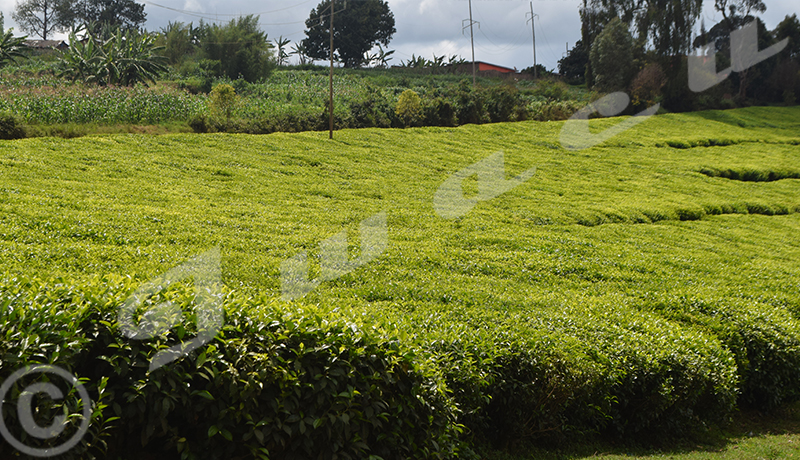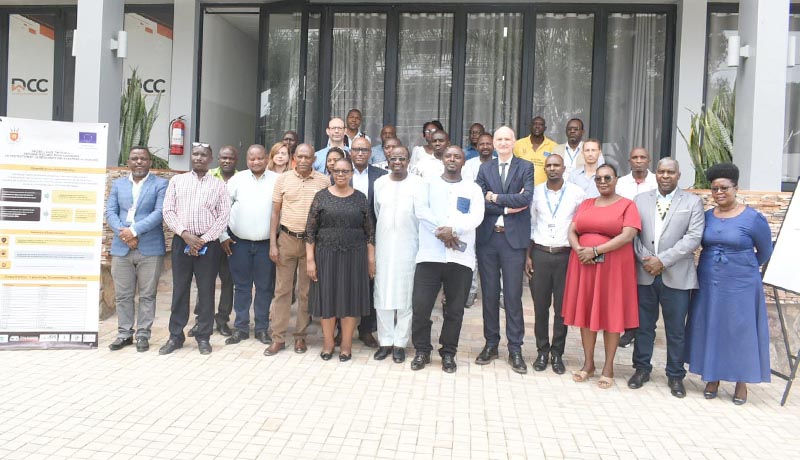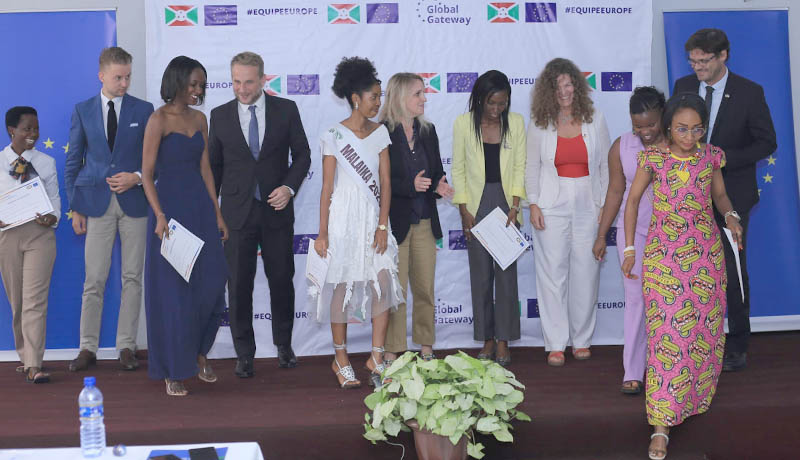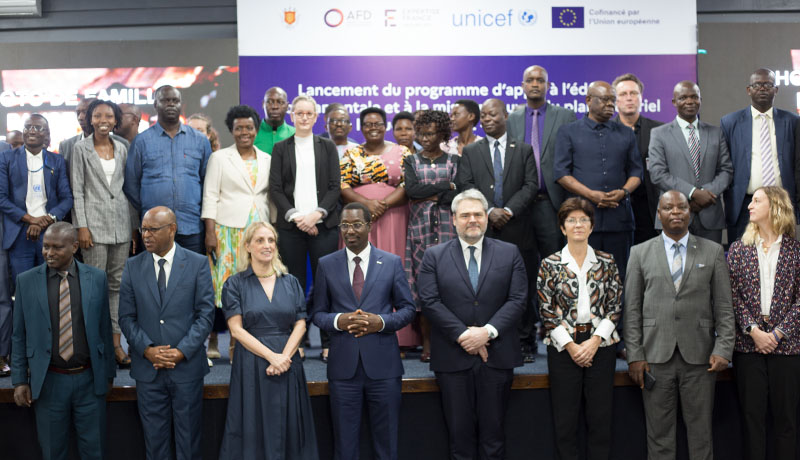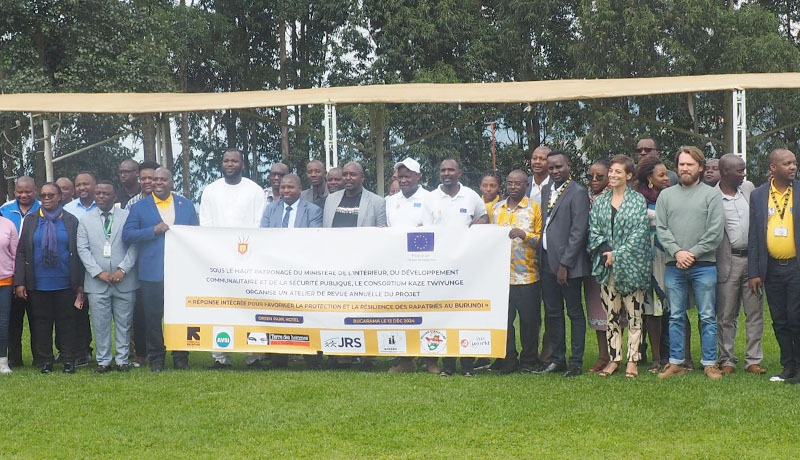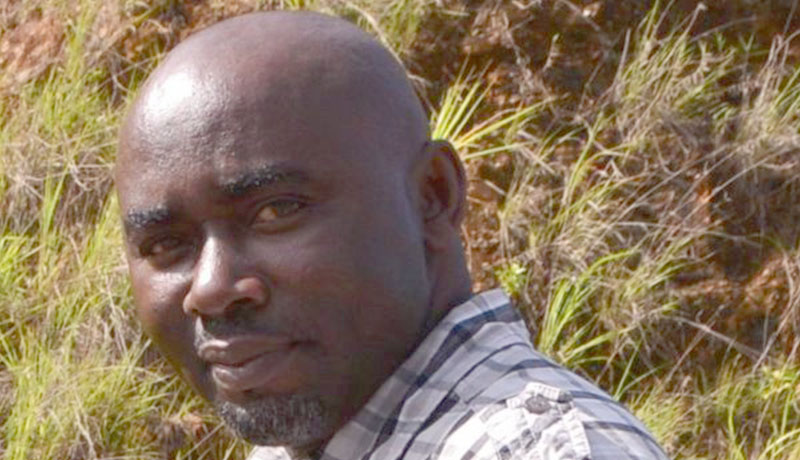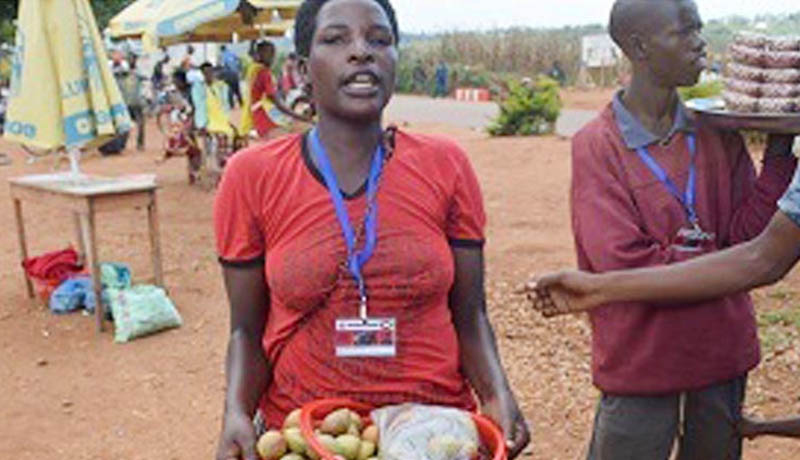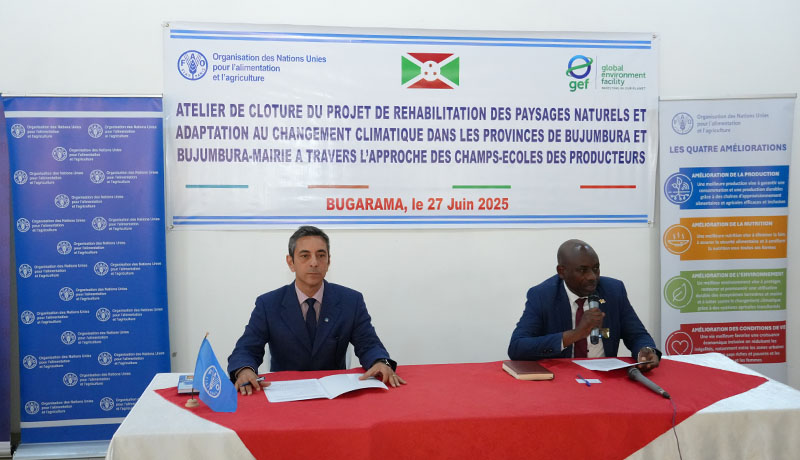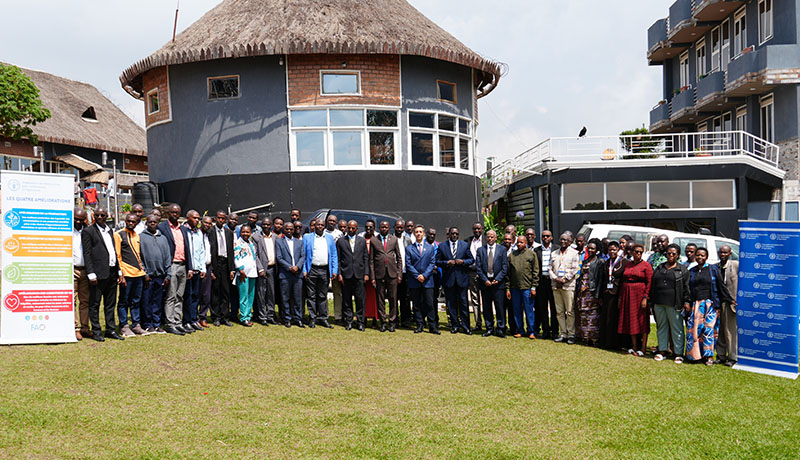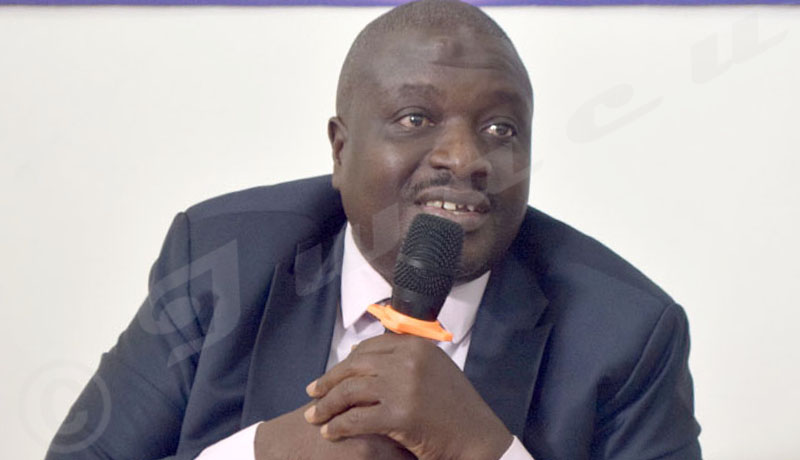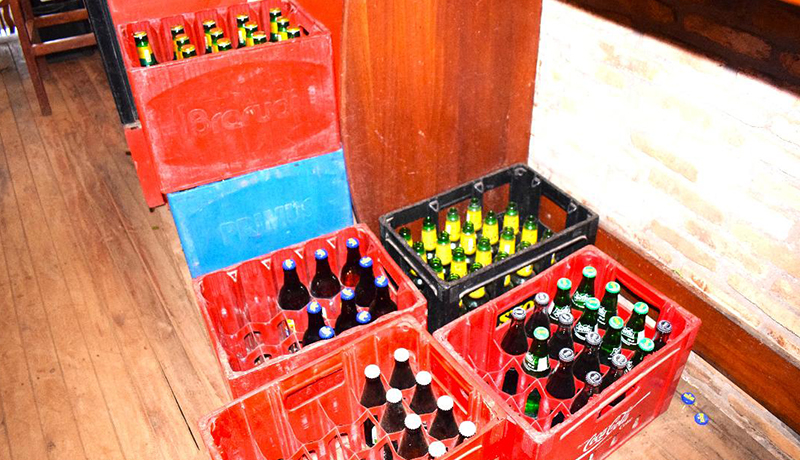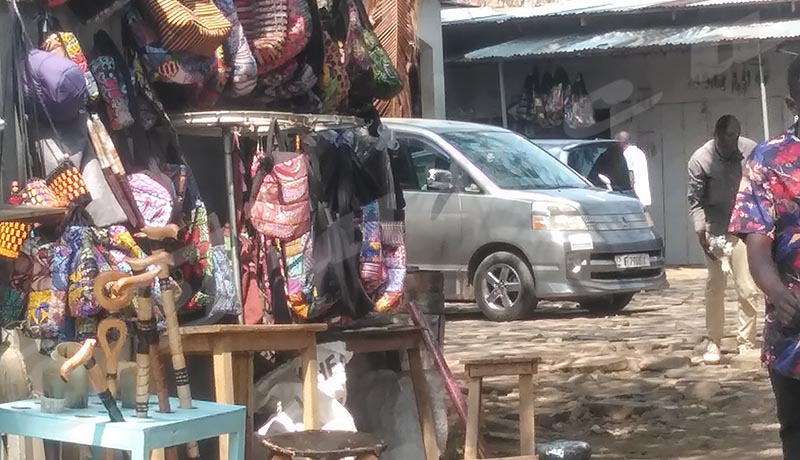Quality equipment, training, capacity building, coaching are part of the support of MarkUp project, funded by the European Union, to the tea sector in Burundi. Operators in this sector are delighted with the improvement in the Burundian tea quality and its competitiveness in international markets.
Funded by the European Union for an amount of €3.680 million, the Market Access Upgrade Program (MARKUP) supported PROTHEM Usine, a private company operating in tea sector in Burundi. Training and coaching sessions are among the services that this company benefited from this project.
“Many of our technicians benefited from training and reinforcement on good agricultural practices and machining practices. Representatives of tea farmers benefiting from our services received training,” explains Tanguy Hicuburundi, sales manager at PROTHEM Usine.
In addition to training, he says, there has been visits and exchanges of experience with partners working in the tea sector: “There were also coaching sessions and audits that were done by MarkUp consultants. They showed us what is being done elsewhere, new practices to have good quality tea. Recommendations have been formulated afterwards.”
He appreciates the technical support provided by the MarkUp program, including equipment for monitoring parameters in the factory.
“The project has been very supportive. With the project, we export quality tea. Before, we had to bring in foreign and expensive consultants. When you have project-funded consultants, it’s beneficial for us.”
For Jacques Habimana, head of industrial department at PROTHEM Usine and at the same time beneficiary of training and coaching, the quality of tea has improved considerably with the support of MarkUp project: “We have mainly been trained on improving tea quality in order to meet the standards required by the international market. The added value is that today we are able to meet international standards as required by customers.”
According to him, technicians currently know how to control machining parameters to have quality tea. He explains that before the trainings and capacity building through MarkUp project, some parameters were not controlled:
“In terms of fermentation, for example, we could exceed the standards as some of our technicians were not well trained. Through trainings and visits to the best factories in the region, especially in Kenya, we have learned what others are doing.”
He is pleased that the quality of Burundian tea is now appreciated on the international market. According to him, there have been positive changes according to reports from Mombasa-based tasters: “Tasters say there has been an improvement in quality of tea produced by our factory.”
“We received multifaceted support from MarkUP”
The Burundi Tea Board (OTB), a government-owned company whose mission is to promote tea farming at the national level and the marketing of tea in Burundi and abroad, is among direct beneficiaries of the support of MarkUp project funded by the European Union. Through this project, OTB officials say they have received multifaceted support.
“MarkUp project has supported us in capacity building so that tea produced can have access to the international market. They first worked on awareness raising, training and technical support for our technicians,” says Méthode Habwawihe, head of quality and certification department at OTB.
According to him, managers who have been trained are from all OTB production factories: “We have trained field supervisors, technical managers on quality infrastructure. OTB staff have received recognized certificates.”
He says that OTB also had coaching support from an international consultant for the production of quality tea: “The coaching lasted at least one week per production unit. The consultant passed by every unit more than twice.” In addition to coaching sessions, company teams also benefited from exchanges of experiences in Burundi and abroad.
According to Méthode Habwawihe, MarkUp project has also strengthened the capacity of OTB laboratories by providing them with laboratory equipment that enables the production of quality tea. Thus, he explains, assessment and analysis at the laboratory level are currently done with great confidence: “It’s not enough, but it has contributed to improving tea quality.”
Rainforest Alliance certification to access European markets
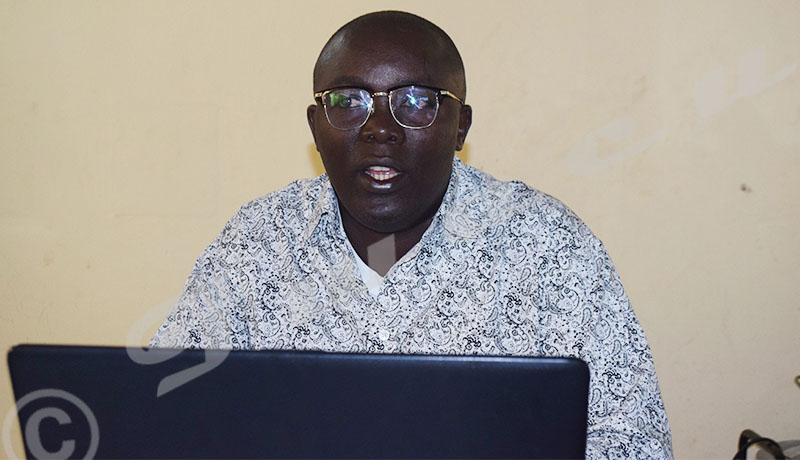
According to Habwawihe Méthode, MarkUp project also supported OTB to have its production plants certified by Rainforest Alliance. This certificate attests that the product complies with three pillars of sustainability: social, economic and environmental pillars.
He says that at least five executives per OTB production unit have been trained on the Rainforest Alliance standard and have received certificates. He appreciates that all of the state-owned company’s production plants are currently Rainforest Alliance certified. For him, this brings an added value to the Burundian tea sector: “The added value is mainly at the level of price competitiveness following the improvement in quality.”
According to him, the Rainforest Alliance certification obtained through MarkUp project allows them to gain trust from customers, because certified tea gives confidence to consumers.
He specifies that this certification allows OTB to access markets and export Burundian tea to Europe: “If Burundian tea is not certified by the Rainforest Alliance, it cannot access certain markets and can no longer be competitive.”
He reassures that Burundian tea is currently accepted everywhere: “For the moment, Burundian tea quality is appreciated all over the world. But quality has no end. We must always improve and maintain the gains.”
For PROTHEM Usine, the Rainforest Alliance certification process is at 60%. The Sales manager of this company Tanguy Hicuburundi appreciates the reached step: “We hope that the project will end having obtained this certificate. It is too expensive. For a company, it can take a lot of years to get this certificate because of the costs, those of consultants, internal auditors, etc.”
He explains that this certificate will allow the company to sell its products abroad, especially in Europe. According to him, the company will be in direct contact with its customers without intermediaries: “When you are in direct contact with customers, the company profits. We, then, get direct feedback from our customers and this allows us to see where to change, improve for different procedures.”
What about the added value for tea farmers?
“Within the trainings, we were taught modern tea farming practices. We learned that it is not good to exceed three leaves in harvesting: two leaves and a bud, to meet quality standards,” explains Etienne Hakizimana, tea farmer and supervisor of tea farmers in Gisozi commune, Mwaro province in the center of the country.
For him, tea production will be better in January and February this year following the training and supervision obtained as part of MarkUp project.
Etienne Hakizimana regrets that the price of BIF 280 per kilo of green leaves remains very low compared to the means and efforts invested in the tea growing: “The price must be revised upwards to BIF 400. With good agricultural practices and quality improvement, we hope that our wish will soon be taken into consideration.”
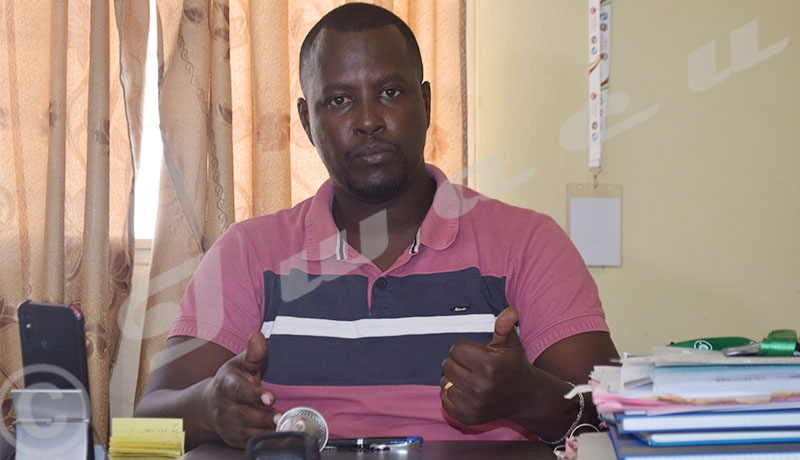
According to Tanguy Hicuburundi, tea farmers adopted traditional practices before the project: “We evaluated production per hectare. Currently, they are starting to evaluate their production by tea tree. They are developing techniques to improve their performance.”
According to him, PROTHEM Usine is setting up a digitalization project that will be beneficial for tea farmers: “This will allow tea farmers to have reliable data, because there will be no more errors. Payments will now be electronic.”
According to the head of quality and certification department at OTB, Méthode Habwawihe, OTB spares no effort to strengthen supervision and extension so that tea cultivation techniques are mastered by producers to increase production.
He explains that the price per kilo of green leaves depends on the international price and the increase in production: “Regularly, depending on the market conditions, OTB gives a premium to tea growers.”
He emphasizes that tea farmers and the government, all win in the sale of quality tea: “When quality increases, foreign exchange earnings increase. As OTB is a government-owned enterprise, all foreign currency from the sale of tea is repatriated to the central bank.” He recalls that 95% of tea produced in Burundi is exported.
Regarding the sustainability of activities after the end of MarkUp project, Méthode Habwawihe reassures that OTB, as a commercial company, will have to maintain the quality of its products with its own means.
He is pleased that MarkUp II project is being developed and will continue to support the tea sector: “Other activities will be specified in this new project and will be able to facilitate increased production, improved quality and access to the international market.”
Designed jointly by the European Union with the General Secretariat of the East African Community (EAC), MarkUP project is a regional initiative that aims at contributing to the economic growth of the community and increase exports of agri-food and horticultural products to the regional and European market.
Launched in 2018 in Burundi, this program focuses on strengthening quality infrastructure services and technical regulations in Burundi with a particular focus on the tea and coffee sectors.
